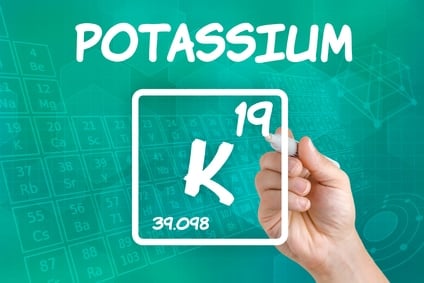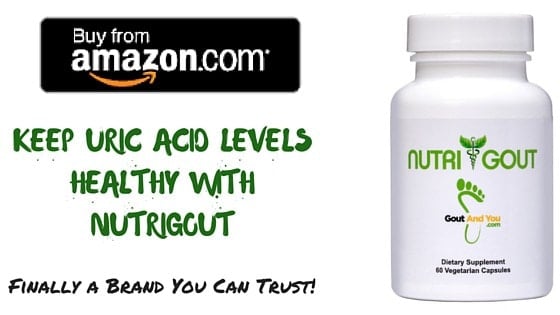Potassium Is A Must In Your Gout Diet
Potassium is an electrolyte that is found in water and many different foods in whole grains, fruits, vegetables, milk and beans. Fruits that are high in potassium, 200 milligrams or more are avocados, bananas, apricots, cantaloupes, dates, figs, kiwis, mangos and oranges. Veggies that are high in potassium are artichokes, squash, beets, carrots, beans, peas, potatoes and tomatoes. Other foods that are high in potassium are cocoa, granola, bran, milk, nuts, seeds and yogurt.
The potassium in fruits and vegetables contains organic salts, such as citrate and malate; salts that may neutralize the uric acid in the urine that may cause you kidney stones. The daily recommended intake for potassium is anywhere between 3500 mg to 4700 mg depending who you talk to. Fish especially halibut and tuna contain more than 400 mg, a cup of lima beans carries 1000 mg and baked potatoes about 900 mg, so you see how easy it is to get your potassium just with your diet alone.
This mineral is also found in potassium citrate, which may be used sometimes to treat gout by facilitating the excretion of uric acid through the urine thereby removing it from the body more efficiently. It also may help prevent crystals from forming and may make your kidneys work better by getting rid of the excess uric acid by helping the crystals to dissolve once they have already formed.
Potassium plays different roles with your carbohydrate metabolism and bodily functions; it may help regulate the acid-base balance throughout your body and is required for your heart to undergo normal electrical activity, it may help build muscle and grow your body normally while maintaining normal blood pressure. In addition, it may help the body to convert glucose into glycogen for energy. It also may aid in your digestion, as it helps eliminate waste products and balance the levels of fluid in your body. Finally, it may help protect your kidney system, as well as your bones and cardiovascular system.
What a potassium imbalance can do to you
In our North American/Western diet, we eat too much sodium which is salt for those who don’t know, fast food restaurants are full of sodium, as well as processed foods causing a high sodium, low potassium imbalance in your body since sodium reduces the level of potassium in your body. This can cause you a number of health issues and one of them could be gout. A good sodium/potassium balance is very important for your overall health. Low potassium levels may be related to gout.
Many gout sufferers claim to have cured or regulated their gout with potassium supplements, as well as potassium bicarbonate ( a colorless, odorless and salty substance) dissolved in juice or sprinkled in food is also a safe and effective way to help with your gout. Potassium citrate can also be used and may be advised in kidney stone patients. Many of these patients have high and uncontrollable levels of potassium in their body and nephrologists will recommend low potassium diets under that circumstance. Anyone with kidney problems should not follow a high-potassium diet without first checking with their doctor.
Talk to your doctor before taking any potassium supplements and since most people get an adequate amount of potassium in their diets already. Taking supplements in that situation can lead to hyperkalemia, a condition where too much potassium is in your blood. Periodic blood monitoring should be undertaken to assess overall potassium levels.
For those who want to dive in deeper on the subject of potassium and gout, you can read chapter 3 from Arthritis as a Potassium Deficiency from Charles Weber.

